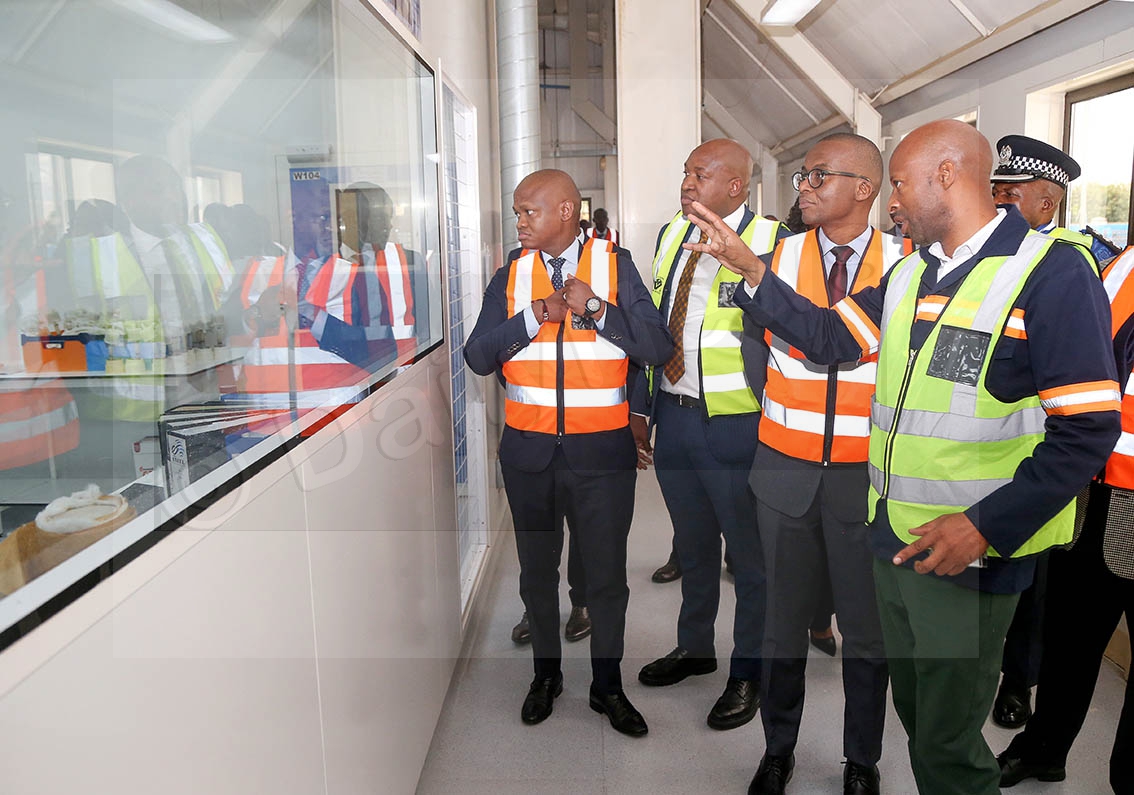Collaboration in education key - official
14 Oct 2025
Collaboration with professional bodies remains critical in coordinating quality assurance across Botswana’s education and training sector.
This was said by Botswana Qualifications Authority (BQA) acting deputy chief executive officer, Mr Ofentse Disang at the signing of a Memorandum of Understanding (MoU) between BQA and the Law Society of Botswana (LSB) recently.
Mr Disang said BQA was committed to working with organisations like the LSB to ensure that qualifications remained relevant, credible and impactful.
“This partnership exemplifies our shared responsibility to prepare professionals who are not only qualified on paper but who are also capable, ethical and ready to serve society,” he said.
He added that professional bodies such as the LSB, were indispensable and played a critical role in setting and upholding the standards of their professions.
“They promote best practices, ensure ethical conduct and hold members accountable. Their involvement is vital to building a qualifications system that is credible and trusted by both the public and industry,” he said.
He indicated that the collaboration would focus on several key areas including aligning regulatory frameworks with professional realities.
“The Law Society’s insight into the needs of the legal profession will help ensure that qualifications in the legal field are relevant, future-focused, and responsive to both national and global trends,” he said.
Again, he said professional standards and codes of practice would inform curriculum design, assessment practices and professional competencies as well as strengthen BQA’s systems with both academic rigor and professional relevance.
Furthermore, he said collaboration with the LSB in offering training, certification and continuous professional development would ensure that legal practitioners remained competent and current to create structured pathways for lifelong learning.
“Alignment of efforts enhances transparency, accountability and credibility in the qualifications landscape, providing the public with assurance that professionals, especially in critical fields like law, meet high standards of competence and ethics,” he said.
He also said the MoU symbolised the power of collaboration, adding that working together fostered a qualifications system that was coherent, inclusive, dynamic and innovative.
“Professional bodies are drivers of innovation and excellence and enable stakeholders to collectively address challenges and harness opportunities for the economy and society,” he said.
For his part, LSB chairperson, Mr Lesedi Moahi, described the MoU as a milestone since the parties had been working independently despite needing to be hand-in-hand to ensure that only deserving people practiced law.
“As the law society, we play the legislative role of lawyers and we need to ensure that the people who petition for admission are deserving, not half-baked. This starts with the educational background and quality assurance of their schooling,” Mr Moahi said.
He emphasised the LSB’s role in being roped in early when an institution planned to offer a law programme in Botswana.
“This involvement allows the LSB to have direct input into the curriculum to establish if it meets the needs of the market, ultimately benefiting the public whom these lawyers will serve,” he added.
BQA board secretary, Ms Thato Outlule said some of the key areas of the MoU included aligning legal qualifications with the National Credit and Qualifications Framework (NCQF), joint efforts in quality assurance audits and validation processes, collaboration in research and policy development for legal education, regular data sharing and information for planning and decision-making as well as mutual efforts to benchmark local qualifications and standards with regional and international best practices.
Ms Outlule added that the MoU’s obligations reflected a mutual commitment to quality assurance.
“For the Law Society of Botswana, this includes maintaining high ethical and governance standards, participating in national reviews, and upholding standards of entry, training, and ongoing professional development. For BQA, we commit to recognizing and supporting the Law Society of Botswana as a valued partner, offering technical support, sharing policy insights, and ensuring that legal qualifications reflect both national relevance and global competitiveness,” Ms Outlule said.
She added that the partnership was a shared vision for professional excellence, public trust and national development, with BQA viewing professional bodies not merely as stakeholders but as co-creators of quality.
“By formalising this partnership, we reaffirm our belief that quality assurance is most effective when it is collaborative, inclusive and anchored in industry realities,” she said. ENDS
Source : BOPA
Author : Ketshepile More
Location : Gaborone
Event : Memorandum signing
Date : 14 Oct 2025




